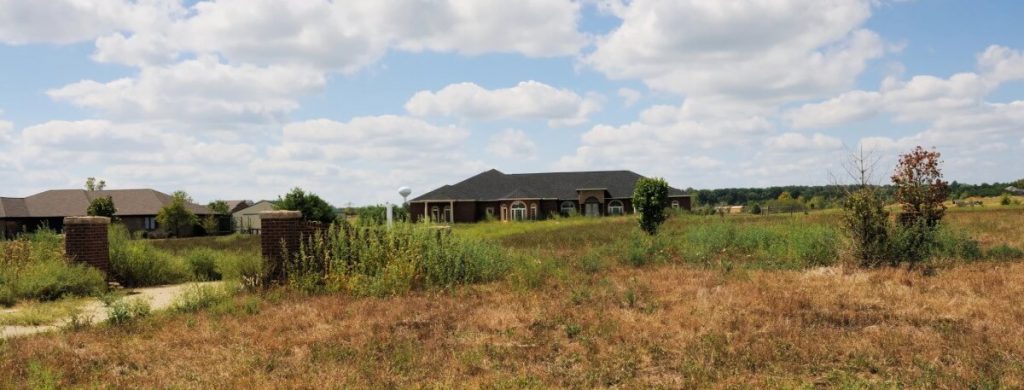Real estate investors looking for affordable properties to buy will often include foreclosed homes in their targets. These are pre-owned homes that have been repossessed by the bank and put on auction for a variety of reasons, and some hold significant potential for investment. Foreclosed homes can make for a great deal as long as the investor has a good idea of what they are getting into when buying one. This method of real estate investing is not suitable for every investor, even if the property prices are attractive.
As good a deal as a foreclosed home may be, it’s not necessarily the right move for a real estate investor only just getting in the game. The advantages that can be gained by taking on a foreclosed home might not be as palpable in the hands of someone that doesn’t have the experience to drive the successful renovation and resale of the property. As many benefits as there are in buying foreclosed homes, there are also serious pitfalls that the investor will need to weigh and factor into their buying decisions.
We’ve put together all the facts about foreclosed homes, including how to tell if it’s a good investment strategy for you to follow:
Table of Contents
What Is A Foreclosed Home?
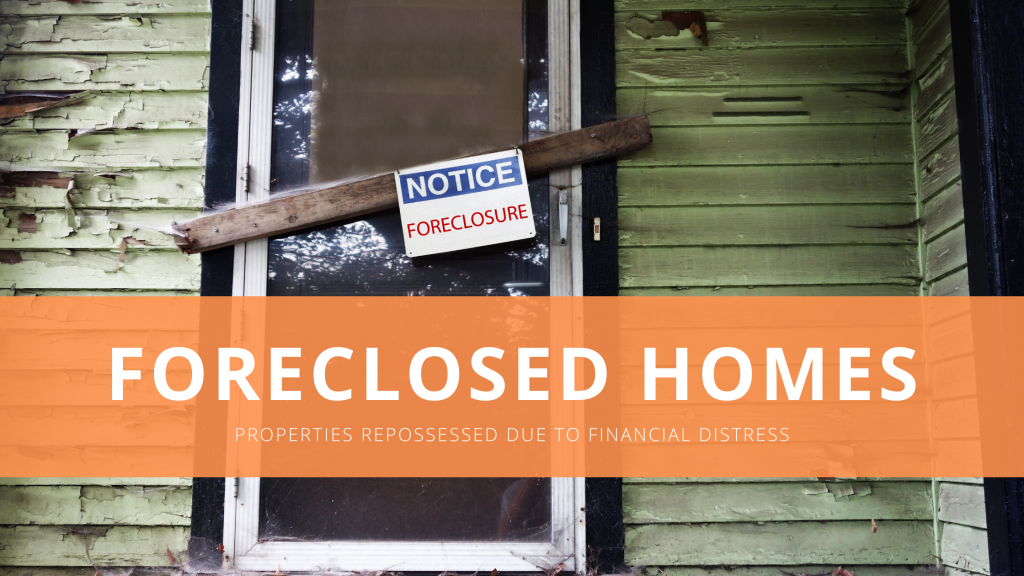
Foreclosed homes are properties that have been repossessed from the original owner by the bank or another lender. These homes are then sold at auction, often under the value that the property would have sold for if it was listed normally. There are multiple reasons why properties go into foreclosure, meaning every foreclosure the investor comes across will have fallen into that category due to different causes.
The most common reason why homes go into foreclosure is that they cease making their regular mortgage payments. If this non-payment continues past a set time period, the bank formally takes ownership of the property with the goal of recouping the funds they originally granted to the borrower. Foreclosed properties are then sold at auctions run by the bank, and these sales account for just over 10% of real estate sales per year.
Banks are not in the practice of managing real estate and will want to offload the property as quickly as possible, which means they are often willing to negotiate on the asking price for the home.
Advantages Of Buying Foreclosures
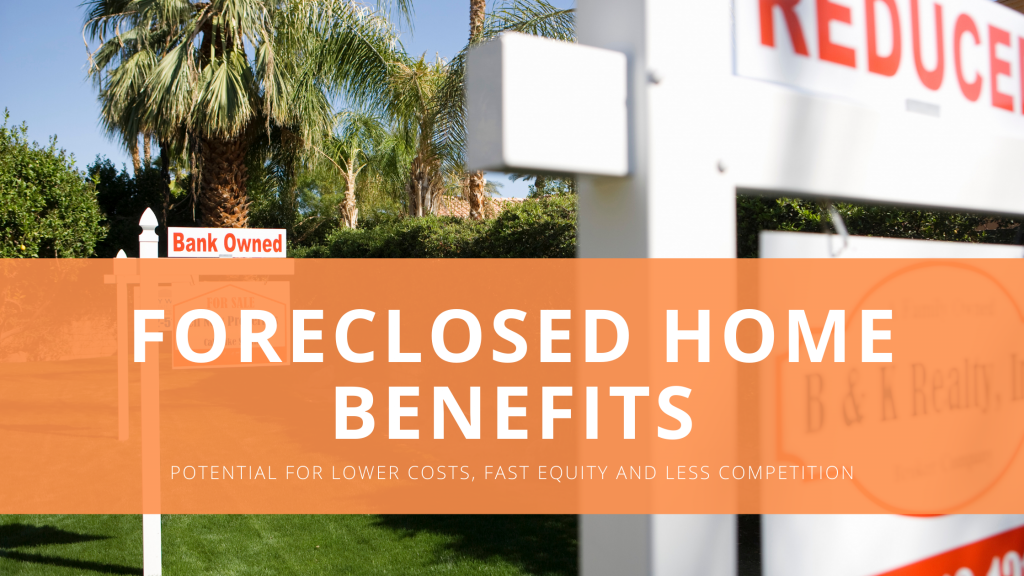
So, apart from the potential of better pricing, what are the real advantages of buying a foreclosed home? Is investing in foreclosed properties more lucrative than other types of real estate investing?
The first reason why investors look to foreclosures has to do with equity. If you’re able to pick up the property at the right price and keep to the budget you have set for renovations, buying a foreclosed home will give you fast equity. This type of equity in real estate describes the difference between the value of the home and the loan amount that needs to be repaid. Effectively, your equity explains how much of the property you own versus how much the bank owns. That equity can be leveraged for use in future investments.
Another advantage that comes with this type of real estate investing is the ability to get exposed to markets that might otherwise have been out of reach. If a foreclosed home comes up in a neighborhood that is usually out of your price range, that could be the investor’s opportunity to buy into it at a lower cost. Some foreclosures sell for prices up to 15% lower than the average in their neighborhood. Provided the renovations needed aren’t too out there, this can lead to a good financial windfall for the investor.
Lastly, there is the advantage of competing with fewer buyers. Unlike regular properties that are sought after by investors and traditional homeowners alike, foreclosures are not a popular choice with first-time buyers. Many foreclosed homes require significant repair and renovation, which scares many away from trying to purchase them. This means that those that are willing to take on the work will have a better chance of getting their bid accepted and landing the home in question.
Buying foreclosed homes under the right circumstances can help the investor achieve a good ROI, but it’s also important to remember that not every foreclosure will lead to the same outcome. Not all foreclosed homes lead to massive profits.
Disadvantages Of Foreclosed Homes
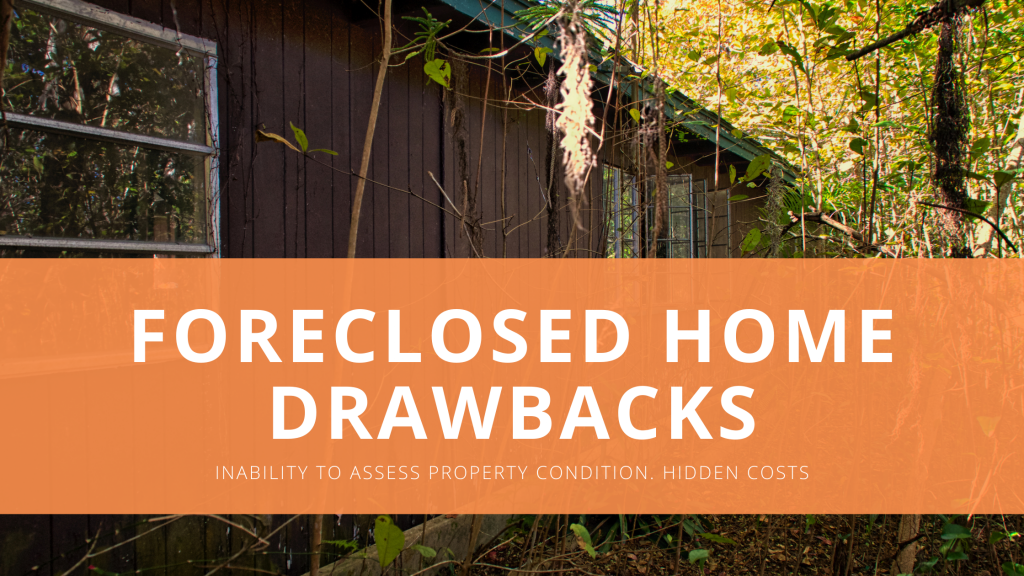
There are a few drawbacks that come from investing in foreclosed properties. The most significant is the fact that homes sold at foreclosure auctions rarely allow tours of the inside of the property. This means that the investor will have to buy the property as-is with all the unknowns that come with it. Many foreclosed homes are older properties that will require renovation to be done in order to be livable and suitable for sale.
Without a clear idea of what will need to be repaired when you are buying the home, you’ll need to set aside enough of your budget to cover the worst eventualities. This is one of the key reasons why investing in foreclosed homes is not for everyone, and it’s recommended that investors have some level of renovation experience before buying one.
The other disadvantage that can affect investments in foreclosed properties is dealing with the previous owner. Foreclosed homes often come from troubled sources, and for the original owner, the process is a difficult one filled with heartache. They may have gotten behind on mortgage payments due to unemployment, financial or health problems, and unfortunately, this sometimes leads to malicious property damage. Foreclosure investors have reported showing up to homes sabotaged by previous owners. Actions like these will contribute to the overall cost the investor has to cover.
When buying a property as-is which is the case with foreclosures, there is a chance that you will inherit any liens that have been placed on the home. A lien is a legal claim on the asset that allows the lien holder to cash in if the debt goes unpaid. Liens are common in situations where a general contractor is owed funds for work completed or a divorce decree has taken place due to missed child or spousal support payments.
In some cases when a property has been vacant for an extended time, there could be other inhabitants to deal with. Insect infestations or squatters can move into the home and the investor will need to take the proper steps to deal with them and prevent them from occupying the property again. Experts recommend taking caution when visiting a foreclosed home for the first time and to view the property along with other people if possible.
In short, investing in a foreclosed home is a process that is fraught with uncertainty, making the profitability something of a gamble.
Is It A Good Idea?
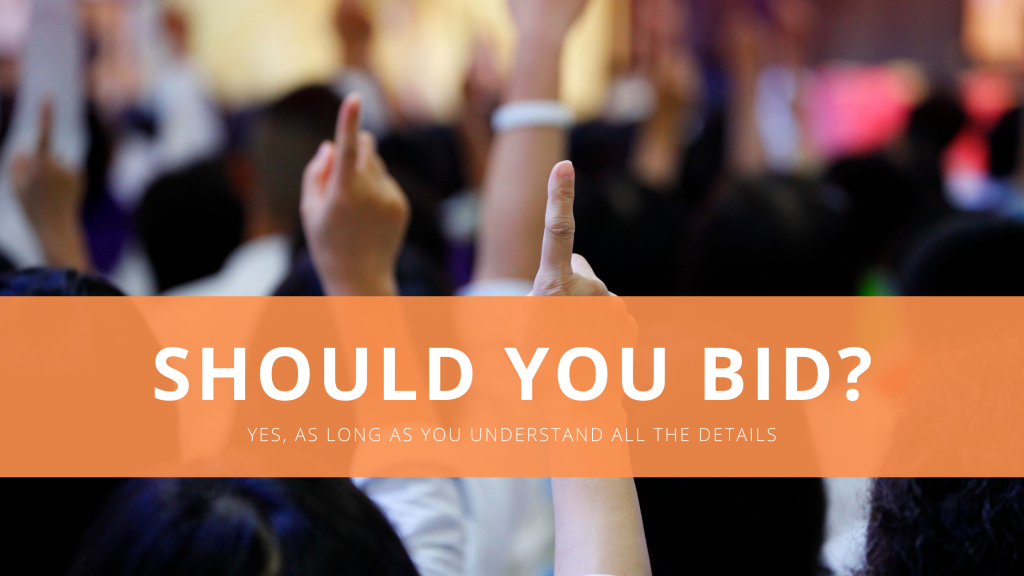
This question is one that is easily asked but difficult to answer. Every foreclosure is unique and will have varying circumstances that will have an impact on their potential for profitability.
Buying a house in foreclosure is a good idea if the investor goes into the transaction aware of what the process will entail and if they have the financial resources to cover any issues that may come up while renovating. If you are able to check both of those boxes, buying a foreclosed home can be a high-ROI move, especially if you have prior house flipping or renovation experience going for you.
If you’re looking for more affordable real estate without the fuss of dealing with renovations, banks, and previous owners, a foreclosed home might not be the right option for you. Investors with less renovation experience or simply not interested in all the fuss may find more success when investing in another type of real estate, like condominium development. Buying a foreclosed home is a serious decision and commitment and not one you want to rush into.
Final Thoughts
Foreclosed homes can be a powerful investment choice for investors that want to acquire real estate at a lower price and are not scared of taking on the work they need to reach a sellable state. While the process of foreclosure is a painful one for the original owner, buying a foreclosed home can give it a new lease on life.
The biggest draw behind buying a property in foreclosure is the potential to save, but there are obstacles that could cancel out any funds that would have been spared otherwise. Just because the homes are being sold via auction doesn’t mean that the price will be better every time.
Finding good deals at auction is a skill that is built up over time. These sales are riskier than normal real estate transactions, and the investor needs to know the process in detail if they are to bid on the right properties. This includes taking a careful look at the auction rules and to do your due diligence on the home before jumping into the bidding. You’ll want to have a lender and real estate lawyer lined up, preferably with experience in dealing with foreclosure sales. These parties will be essential to understanding your responsibilities should you be the winning bidder.
The good news is that for investors interested in foreclosures, finding one is as simple as going online. There are websites out there that are dedicated to foreclosed properties and other real estate deals like FlipScout by New Silver which is free to use.
FAQ
- Is it a bad idea to buy a foreclosed home?
It’s not necessarily a bad idea but there are important factors to consider, such as hidden costs, your level of renovation experience, and more.
- What are the risks of buying a foreclosed property?
The biggest risk is the fact that you may not be able to tour the property in depth beforehand. Most foreclosed properties are sold “as-is” and this means you’ll need to prepare for any eventuality, including potential renovation disasters.
- What are the pros and cons of buying a foreclosed home?
The pros are the chance to be exposed to otherwise unaffordable real estate markets at a lower cost and less competition. The cons are that there could be hidden renovation costs or the home might have issues relating to the previous owner or have a lien outstanding against it.
- What happens if you buy a house in foreclosure?
You’ll go through the closing process along with your real estate lawyer, including doing a thorough home inspection with the help of a general contractor or property appraiser. Renovations will need to be completed and the property marketed for sale once all steps have been completed.
